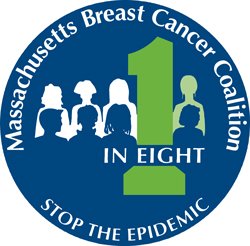Massachusetts Breast Cancer Coalition (MBCC) will be a community partner for a new Silent Spring Institute-led investigation of the health effects of PFAS exposure from drinking water among adults and children in Hyannis and Ayer. This study, part of a larger multi-site health study supported by the Centers for Disease Control and Prevention (CDC) and the Agency for Toxic Substances and Disease Registry (ATSDR), also includes researchers from Harvard T.H. Chan School of Public Health and Eastern Research Group, along with the community group People of Ayer Concerned about the Environment.
The study is one of seven projects being funded through ATSDR’s new multi-site health study on PFAS. The team plans to collect blood samples from 1000 adults and 300 children in Ayer and Hyannis, where public drinking water supplies have been contaminated by PFAS from the use of firefighting foams at nearby fire training areas. The researchers will analyze the samples for a range of known PFAS chemicals, biological markers of different health effects (including effects on the immune system, reproduction, cholesterol levels, and neurobehavioral effects in children), and previously unknown PFAS chemicals that study participants may have been exposed to.
PFAS (also known as per- and polyfluoroalkyl substances) are a class of hazardous chemicals that have been detected in drinking water supplies across the country. More than 100 million Americans are estimated to have PFAS in their tap water and the Department of Defense has identified some 400 military sites that are known or suspected to have PFAS contamination. In addition to firefighting foams, PFAS are also used in a wide range of consumer products, including grease-proof food packaging, waterproof apparel, and stain-resistant carpets.
“Once again Silent Spring Institute is being recognized as a national leader paving the way to ensure that our children, grandchildren, and future generations will be living in an environment with cleaner water to drink,” says Cheryl Osimo, MBCC’s Executive Director. “MBCC is honored to be a community partner on this project, and looks forward to working with both the Cape Cod and Ayer communities.”
In 2018, Silent Spring Institute and their collaborators launched a project, called PFAS-REACH, to investigate the effects of contaminated drinking water on the efficacy of childhood vaccines. The new ATSDR study includes both adults and children and is investigating a wide range of health effects.
“We are pleased to be working with the experienced advocates from Massachusetts Breast Cancer Coalition on both this ATSDR study and PFAS-REACH,” says project leader Laurel Schaider, PhD, an environmental chemist at Silent Spring Institute. “Engaging community members in learning about their exposures can help them reduce their exposures, talk to their health care providers, or advocate for stronger health and environmental protections, and MBCC is very skilled at building these connections with the community.”
Silent Spring Institute is an independent scientific research organization founded by MBCC.
CDC/ATSDR press release
Massachusetts Breast Cancer Coalition is dedicated to preventing environmental causes of breast cancer through community education, research advocacy, and changes to public policy.
